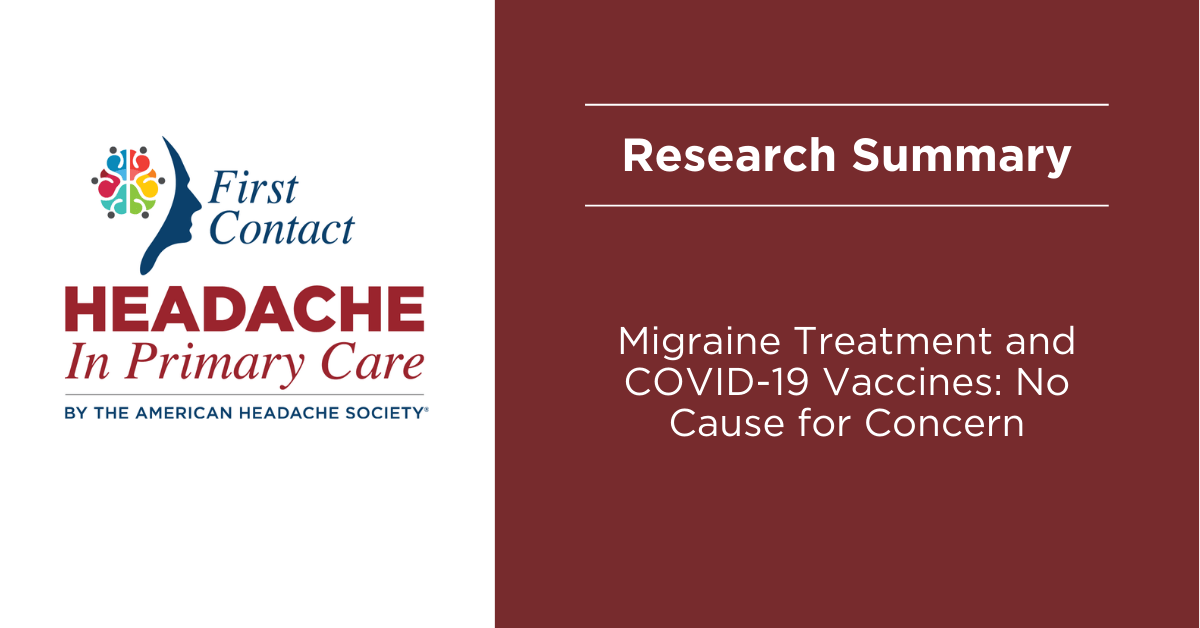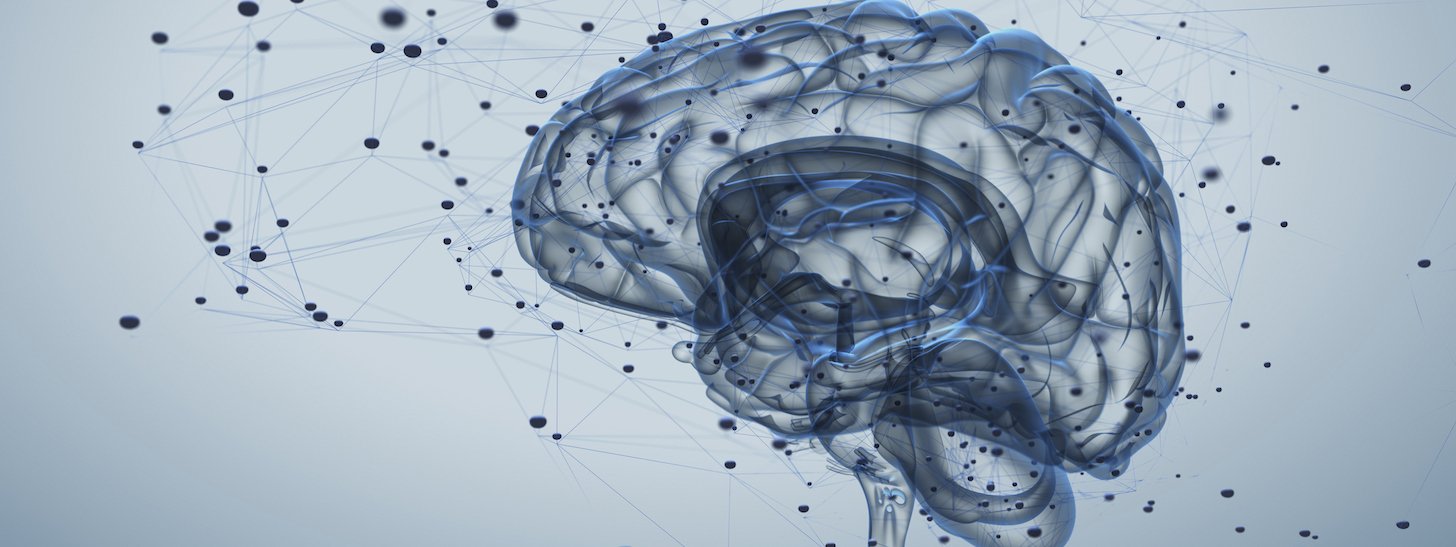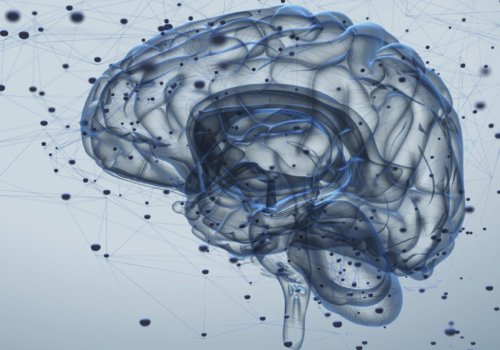
Research Summary: Migraine Treatment and COVID-19 Vaccines: No Cause for Concern
Headache®: The Journal of Head and Face Pain recently published Migraine Treatment and COVID‐19 Vaccines: No Cause for Concern.
COVID-19 has brought up questions about whether vaccines have an impact on the management of migraine and other headache disorders. While many patients with migraine and other headache disorders likely entered the COVID-19 vaccine trials, specific data on any association between the safety or efficacy of the vaccine and migraine treatments has not been reported. Two major questions arose: Does migraine treatment impair the efficacy or impact the safety of the COVID-19 vaccine? And, does the COVID-19 vaccine adversely impact the efficacy of migraine treatments?
Study Overview
Study Methods
- As there are no published data on the topics, the information presented is based on expert opinion.
Study Comments
NSAIDs and acetaminophen:
- The CDC does not recommend routine prophylactic use of NSAIDs or acetaminophen before a vaccine.
- These medications can be taken for the treatment of post-vaccine local or systemic symptoms if needed.
- Additionally, the AstraZeneca trials of the adenovirus-vectored vaccine used prophylactic paracetamol to reduce vaccine reactogenicity with no apparent detrimental effect on subsequent antibody response.
OnabotulinumtoxinA injections:
- There is no reason to think that onabootulinumtoxinA impairs the immune response to any COVID-19 vaccine.
- OnabotulinumtoxinA is not considered a “dermal filler.” The FDA reported two trial participants experienced facial swelling in areas they received dermal fillers after the vaccine. This observation is not pertinent to patients receiving onabotulinumtoxinA injections.
CGRP pathway monoclonal antibodies:
- Clinical trial evidence with the monoclonal antibodies has not suggested that they are immunosuppressive or myelosuppressive, so there is no reason to think these would impair the body’s immunologic response to any COVID-19 vaccine.
- The three mAbs that are given by subcutaneous injection can cause local injection site reactions which could be confused with a local vaccine if administered in the same arm—it is recommended to inject the mAb on the opposite arm to the one in which the vaccine was given, or to inject in the thigh or abdomen.
Migraine preventive efficacy:
- There is no reason to think antibodies to the spike protein of SARS-CoV-2 would neutralize onabotulinumtoxinA or antibodies to CGRP or its receptor, therefore there is no rationale to change the timing of these treatments out of concern for impairing their efficacy.
Study Conclusion
- The established risks of infection with COVID-19 and the proven efficacy of migraine prevention therapies show the importance of not delaying either of these interventions.
- Use of NSAIDs or acetaminophen after the vaccine is not contraindicated, however, the CDC recommends against their routine use before the vaccine.
- It is important for patients to make treatment decisions together with their healthcare professionals.
This summary is part of the First Contact — Headache in Primary Care initiative, an American Headache Society program that provides educational resources to empower healthcare professionals and improve headache and migraine care. We encourage providers in all stages of their careers to visit our homepage to access educational tools to improve patient care.


